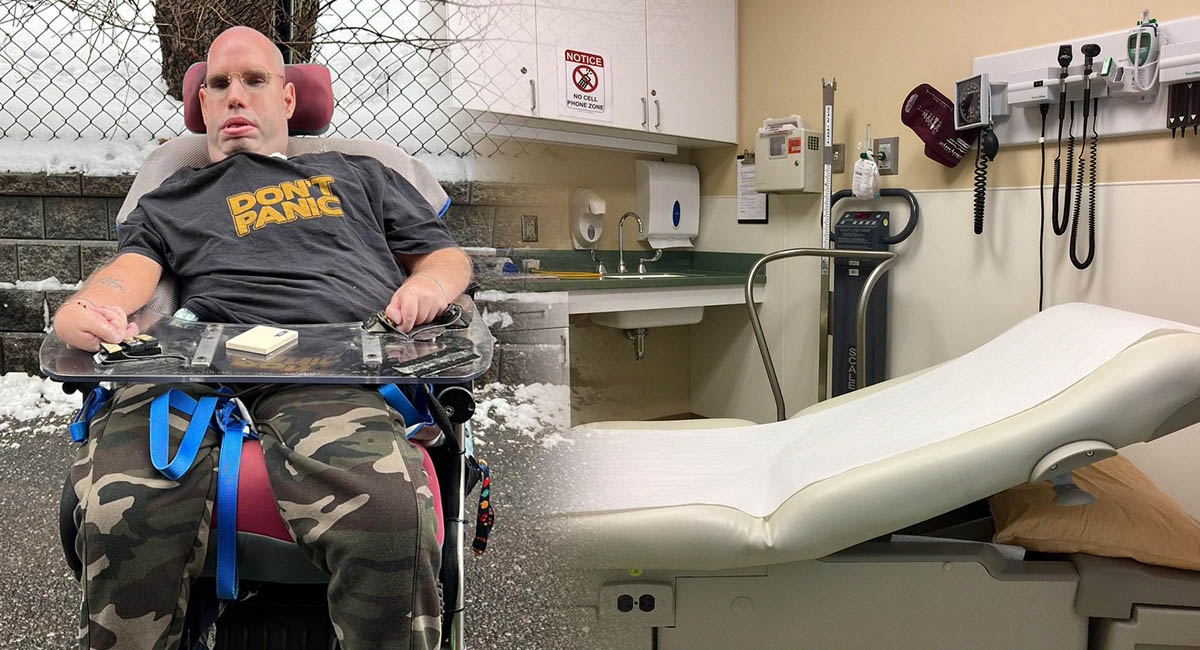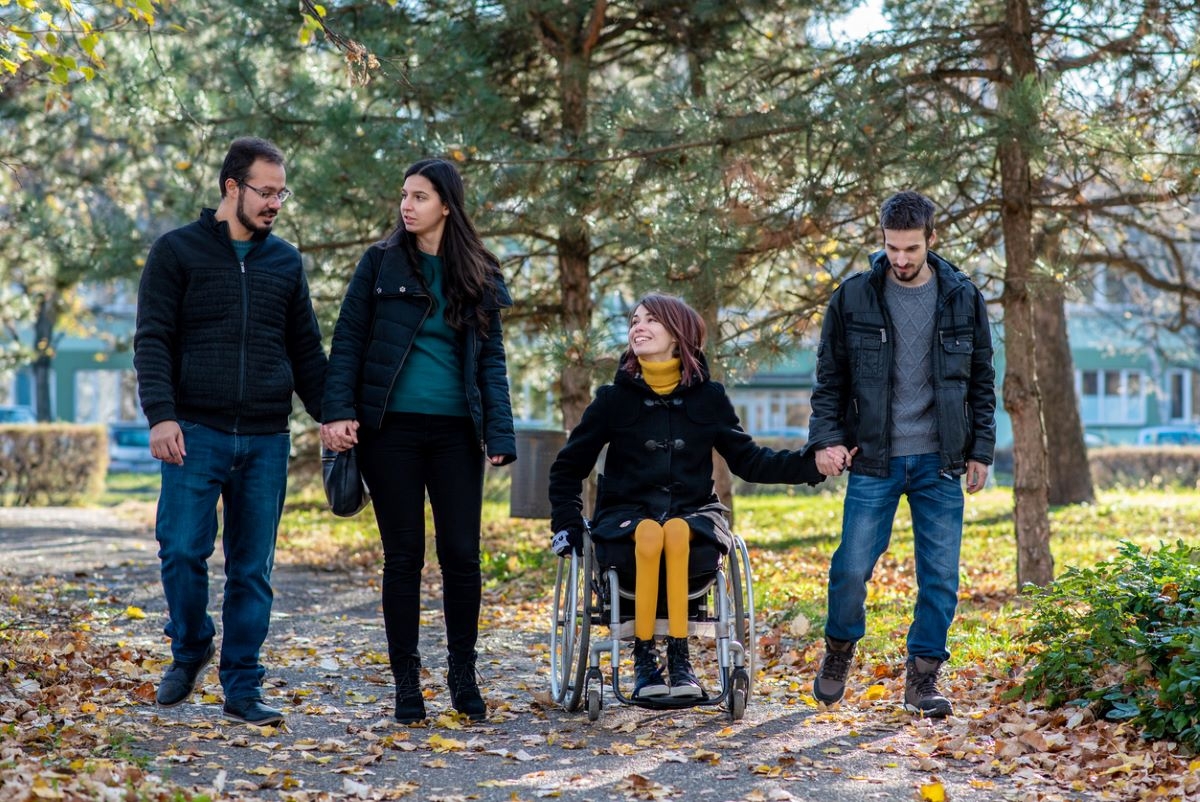
A non-healthy dose of accessibility at medical clinics
ABOVE: Ryan Lythall says small offices and tiny exam rooms are barriers PWD face when accessing healthcare.
Last week, I had a doctor’s appointment. All went well, but it wasn’t a typical appointment. It was for my yearly physical.
Most people get on the doctor’s table while their doctor examines them. However, for a person with a disability, it can be very different and, in some cases, traumatizing.
Most doctor's offices aren’t equipped with a ceiling or mechanical lift.
A lift is what many people with disabilities use to transfer to and from their wheelchairs.
I like to describe lifts as similar to the claw inside the claw machine. The main difference is the “claws” on the lift get hooked up to a mesh sling instead of our head.
When I roll into a medical office and, the doctor wants to examine me, one of two things happens. I either have to make another appointment, either at a hospital or in my home. The other thing that happens is the doctor dismisses me and my concerns.
Both of those situations are disrespectful toward PWD and can also affect our health and put us at further risk. By now, we’ve all heard how early detection of certain medical conditions can save lives. By forcing PWD, and those requiring extra assistance with transferring to a bed to book another appointment, we’re also being forced to delay much-needed treatment.
Already, PWD face a number of challenges when it comes to maintaining their health. Why are we being denied access to something as simple as a physical examination?
The easy answer is the severe cutbacks on our healthcare. While cutbacks are a big part of the reason, it’s certainly not the only reason.
On many occasions, I’ve been to medical clinics located inside barely wheelchair-accessible buildings. Some clinics are not accessible at all. The buildings that are accessible, the clinics are often tiny, and the doctor’s offices are even smaller. Often, there’s barely enough room for a person using a small wheelchair to get in.
Sometimes, it’s a matter of a location offering cheap rent for office space. Other times, the doctor simply refuses to accept patients with a disability or complex medical needs. Is it wrong to discriminate against people with disabilities and those vulnerable?
Absolutely!
Much of the reason is due to ignorance. People in general often view PWD as being born with an illness, and thus, not worth the time or effort to be cared for.
Also, most of us are taught that nurses and doctors are superheroes and they’re all good people. I have come across many that are amazing and have even saved my life. The fact of the matter is, people in the medical profession are also…
Wait for it…
Wait for it…
HUMAN!
Humans, as we all know, can be ignorant, along with other negative traits. Humans can sometimes judge others, although some try to deny it.
I experience ignorance on an almost daily basis. Everything from the City of Ottawa's lack of efforts regarding wheelchair accessibility, or people assuming I’m non-verbal or mentally challenged.
Just because SOME PWD may not go out much or are non-verbal or mentally challenged, it doesn’t mean we all are.
As a society, we need to do better when it comes to being accepting and understanding toward those who are different.
This should be especially true for those working in healthcare.
If you’re a doctor or a nurse working in a small clinic, I have a few questions for you and am genuinely curious.
- Did you choose to work at that location?
- Were you, or are you aware that due to office space, and lack of wheelchair accessibility, people with disabilities may not be able to access all of the services the clinic provides?
- How do you and your co-workers view people with disabilities and those with complex medical needs?
- Are there any plans to make changes to your current location or change locations for the clinic to be wheelchair accessible?
For those able to answer my questions, please feel free to reach out to me on social media if you’re comfortable.
If you’re uncomfortable reaching out, simply ask yourself the same questions.
Regardless of how you choose to respond, the answers may surprise you.









